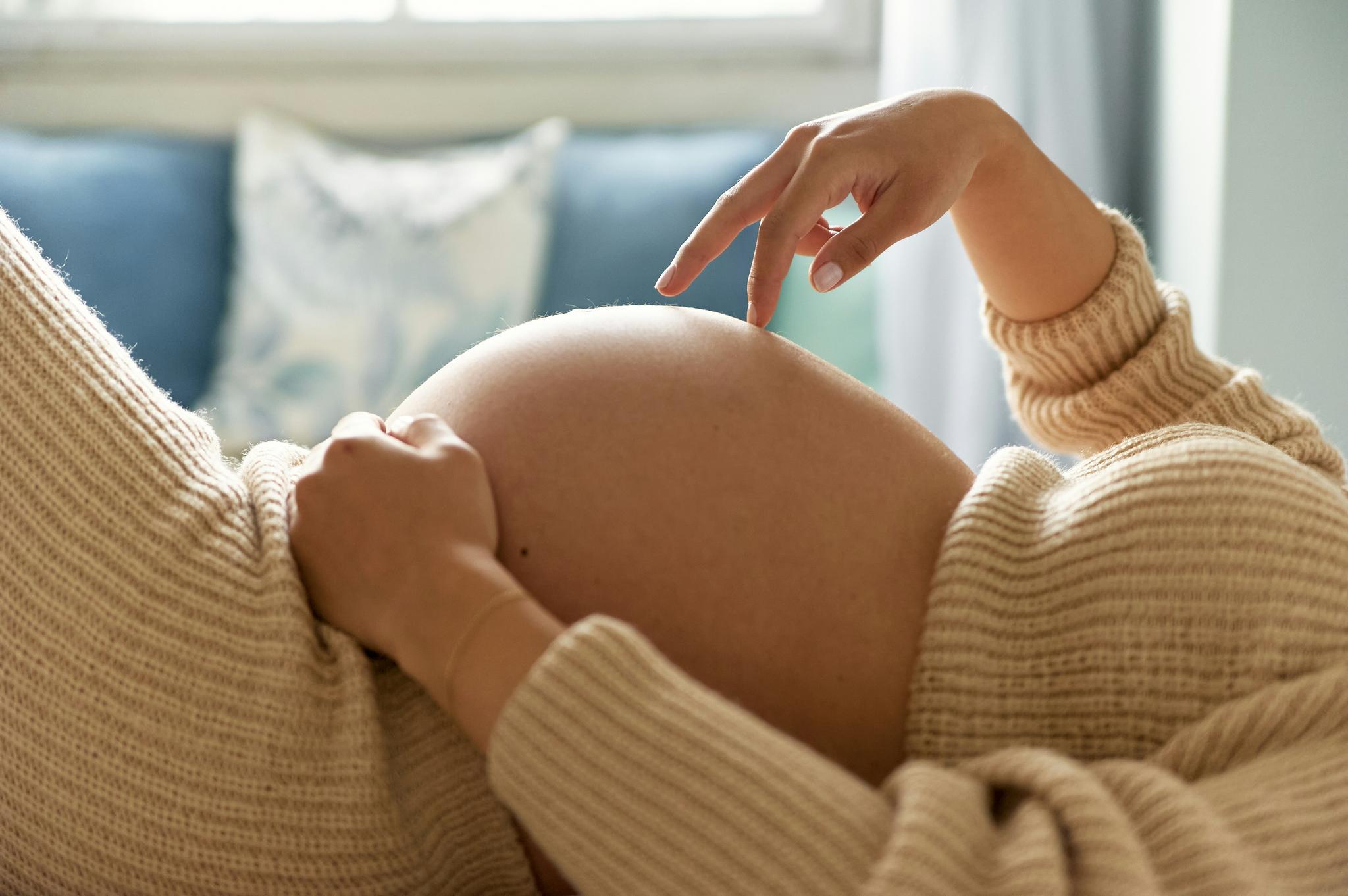Abdominal Itching
Last updated
First published

It is common to get itching over your abdomen or belly during pregnancy.
Often, the itching is caused by changing levels of hormones or your abdominal skin stretching to accommodate your growing baby.
However, occasionally itching can signify a more serious medical condition called intrahepatic cholestasis of pregnancy.
Here we will look at the different causes of abdominal itching in pregnancy and how to manage them.
Hormones and Itching
As the levels of estrogen and progesterone change during pregnancy, itching can occur.
This itching is usually mild and is unlikely to cause you or your baby any harm.
For mild itching, you may find it helpful to:
Wear cotton clothing that is loose and keeps you cool
Have a cool bath, and avoid hot baths
Avoid using strong perfumes or scented soaps
Cut down on spicy food and caffeine
Abstain from alcohol.
The itching is likely to settle after the birth of your baby. However, if it bothers you, it is wise to speak to your midwife for advice.
Stretched Skin
As your bump grows, the skin of your abdomen has to stretch to keep up with it.
This stretching can lead to itching.
Some women find it helpful to use an unscented emollient moisturizer, such as aqueous cream, on their bumps. Emollients keep the skin well hydrated which may help reduce the sensation of itching.
Speak to your midwife if an emollient does not help with the itching.
Intrahepatic Cholestasis of Pregnancy
Itching in pregnancy can also be a sign of intrahepatic cholestasis of pregnancy (ICP). ICP is sometimes known as obstetric cholestasis.
ICP affects around 1 in 140 pregnant women and requires medical input. It often occurs after 30 weeks of pregnancy but can start as early as the first trimester.
Itching is the most common symptom of intrahepatic cholestasis. It commonly affects the hands and feet but can occur anywhere on the body. If you have abdominal itching that doesn't settle, your midwife or doctor may need to assess you for ICP.
Other symptoms of ICP include:
Itching that is often worse at night
Dark urine
Pale poo
Jaundice (yellowing skin or the eyes' whites).
What Causes ICP?
ICP is a liver condition of pregnancy.
In health, the liver makes bile acids which are transported to the digestive tract via the bile duct. The bile acids help us to digest our food.
In ICP, the flow of the bile acids is interrupted. Rather than being released into the gut, the bile acids build up in the body.
How is ICP Treated?
Women with ICP must carefully monitor their liver enzymes and bile acid levels. Regular blood tests and check-ups are required with your midwife or doctor.
Some women will be offered an early induction of labor. This is because a slightly higher risk of stillbirth is associated with ICP.
Your medical team may prescribe medications to help reduce bile acids. This, in turn, can help to relieve itching.
Emollient creams can also help to relieve the itching sensation.
In most women, ICP will resolve after the baby has been born.
Final Thoughts
Abdominal itching is common in pregnancy and is often caused by hormonal changes or stretching of the skin of the abdomen.
However, itching can be a sign of the more serious medical condition intrahepatic cholestasis of pregnancy which requires monitoring and treatment. In some cases, early delivery of the baby is recommended.
If you are troubled by itching anywhere on your body during pregnancy, it is wise to inform your midwife so that the appropriate investigations can be completed. Speaking to a medical professional will ensure that you and your baby receive any treatment required for a healthy pregnancy.
